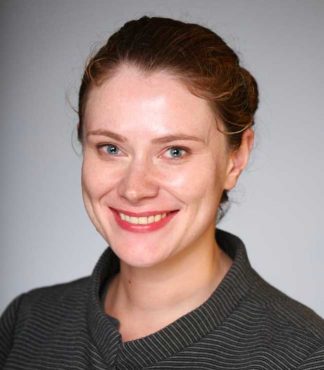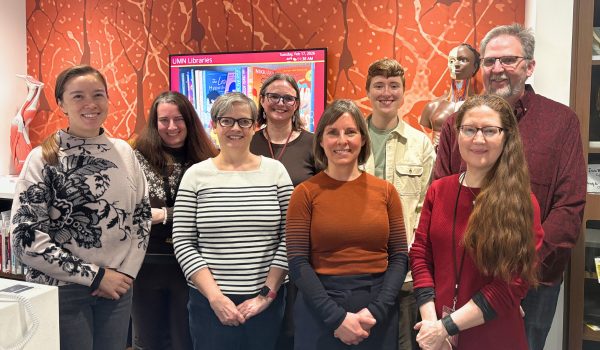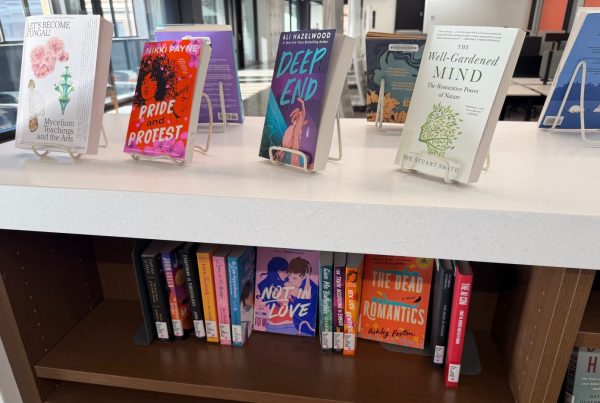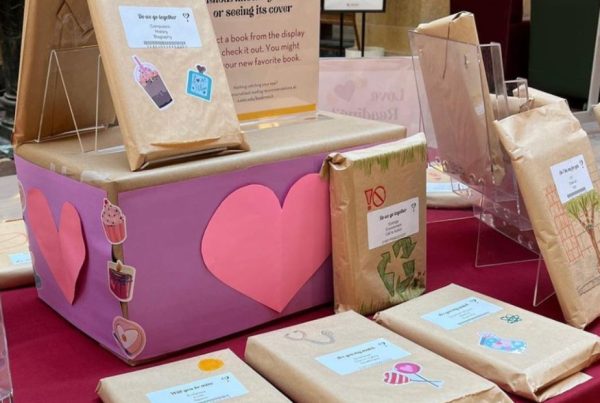By Allison Campbell-Jensen
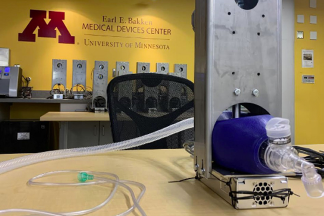
The Coventor is a low-cost ventilator first conceived by a team of University of Minnesota researchers and an alumnus. This first-of-its-kind ventilator is authorized for use under the FDA’s Emergency Use Authorization for the COVID-19 outbreak.
One of the team who invented the Coventor ventilator wanted to know its impact — not its treatment impact, as it had only recently been approved by the FDA. He wanted to know its news impact, so he contacted the Health Sciences Libraries’ Policy & News Media Impact Service.
Stephen Richardson, an anesthesiologist who was on the team that invented the Coventor ventilator, requested a report. The Policy & News Media Impact Service team found 66 references to the ventilator, a very low-cost, low-tech approach to pumping air into lungs of patients suffering from COVID-19. The references included newspapers, magazines, TV stories, radio shows, blogs, and websites — everything but word of mouth.
Richardson shared the results with colleagues via email and one responded: “I had no idea that the Libraries could do that.” Yes, they can.
More than books on shelves
Talented librarians Caitlin Bakker, Jenny McBurney, Melissa Aho, Katherine Chew, and Erin Reardon are the members of the HSL Policy & News Media Impact Service.
“I think some people still associate libraries with books on shelves,” Bakker says, but “we’re showcasing what librarians and libraries can offer.”
Given a research project or a paper or an invention, the service team gathers references that appear “outside a purely academic realm” in the news media or in policy documents, says Bakker, who leads the service. The service is available to individual faculty, research groups, or departments in health sciences looking to surface their meaningful work and its broad impact.
While many people may still think of universities as ivory towers, university research can make a difference in people’s lives.
“Our researchers do work that’s impactful to our community, our state, our cities,” Bakker says, and expresses the land-grant ethos of the University of Minnesota. The Coventor ventilator is a good example of this — and the report brings to light the contributions that the ventilator is making.
‘Everyone’s work is impactful’
“I think some people still associate libraries with books on shelves… [but] we’re showcasing what librarians and libraries can offer.”
—Caitlin Bakker
For the Coventor project, Bakker and others were responding to a very timely need and with no scholarly work to reference. But usually the team is looking at more long-term impacts. The HSL Policy & News Media Impact Service has an array of tools to demonstrate faculty impact, Bakker says.
The Libraries can help people figure out which tool is the best for them. There are many ways to describe and measure things — and Bakker and team can talk with faculty about which are the most appropriate.
“Everyone’s work is impactful,” she says. It’s just a matter of figuring out which tools to leverage to show that impact.
About the Policy and News Media Impact service
The Policy and News Media Impact Service is available to U of M researchers affiliated with the Health Sciences.


